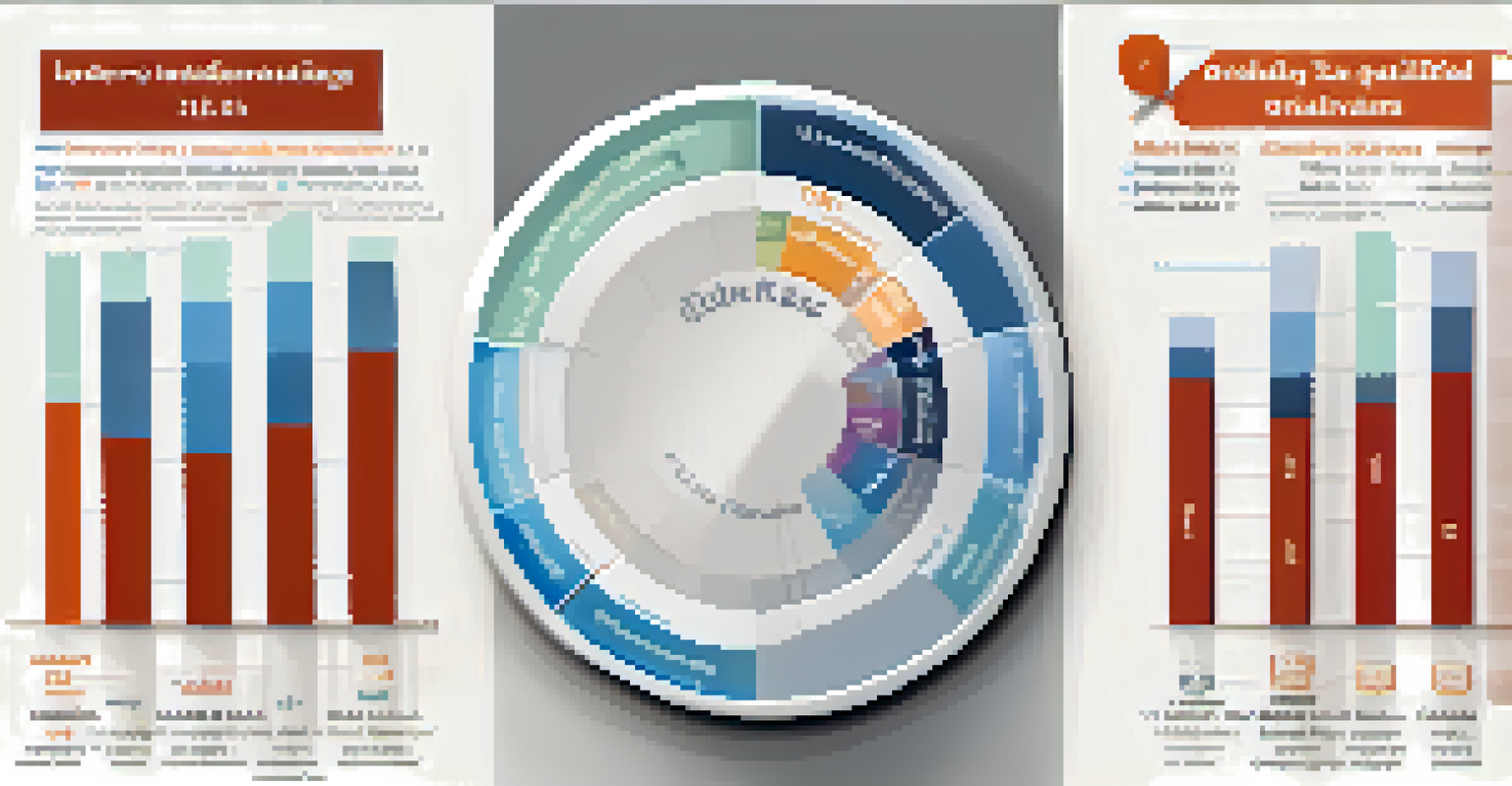Tax Implications of Dividends: What Investors Should Know

What Are Dividends and Why Do They Matter?
Dividends are payments made by a company to its shareholders, usually from profits. They can be a significant source of income for investors, especially those who rely on cash flow from their investments. Understanding dividends is essential because they can influence not only your investment strategy but also your tax obligations.
In investing, what is comfortable is rarely profitable.
Companies typically pay dividends on a regular basis, often quarterly, which can provide a steady income stream. This is particularly appealing for retirees or those seeking passive income. Moreover, dividend-paying stocks can offer potential for capital appreciation, making them attractive to a wide range of investors.
However, the way dividends are taxed can vary significantly based on several factors, including the type of dividend and your income level. This complexity is why it's crucial for investors to have a good grasp of tax implications surrounding dividends.
Types of Dividends: Ordinary vs. Qualified
Dividends are generally classified into two primary categories: ordinary and qualified dividends. Ordinary dividends are taxed at your regular income tax rate, which can range from 10% to 37%, depending on your total taxable income. This can lead to a substantial tax burden for high-income earners.

On the other hand, qualified dividends are taxed at a lower rate, typically ranging from 0% to 20%, depending on your tax bracket. To be considered qualified, dividends must meet specific criteria, such as being paid by a U.S. corporation or a qualified foreign corporation, and the shares must be held for a certain period.
Understanding Dividends is Key
Dividends provide a crucial income source for investors and affect both investment strategies and tax obligations.
Understanding these distinctions is vital for investors looking to maximize their returns while minimizing their tax liabilities. By focusing on qualified dividends, investors can potentially keep more of their earnings in their pockets.
How Dividend Taxes Affect Your Investment Strategy
The tax implications of dividends can significantly shape your investment strategy. For instance, if you're in a higher tax bracket, focusing on growth stocks that reinvest earnings rather than pay dividends can be a more tax-efficient strategy. This approach allows your investments to grow without incurring immediate tax liabilities.
The stock market is filled with individuals who know the price of everything, but the value of nothing.
Conversely, if you are in a lower tax bracket or seeking stable income, dividend-paying stocks might be more appealing despite the tax implications. This balance between growth and income is a crucial consideration for investors at different life stages or with varying goals.
Ultimately, every investor should assess their unique financial situation and tax circumstances when deciding how to incorporate dividends into their portfolio. This personalized approach can lead to more effective investment outcomes.
State Taxes and Their Impact on Dividend Income
In addition to federal taxes, state taxes can also impact your dividend income. Some states tax dividends at the same rate as ordinary income, while others may have different rates or even exemptions for certain types of income. This variability can significantly affect your overall tax liability.
For example, states like Florida and Texas do not levy a state income tax, meaning dividends received by residents are not taxed at the state level. Conversely, states like California impose high income tax rates that apply to dividends, which could reduce your net income considerably.
Tax Types: Ordinary vs. Qualified
Differentiating between ordinary and qualified dividends is essential for maximizing returns and minimizing tax liabilities.
Investors should be aware of their state's tax policies to make informed decisions regarding where to live and invest. Understanding these regulations can help in planning your investment strategy and minimizing tax exposure.
Impact of Tax-Advantaged Accounts on Dividend Taxes
Tax-advantaged accounts, like IRAs and 401(k)s, can significantly alter the tax implications of dividends. In these accounts, dividends can grow tax-deferred or even tax-free, depending on the type of account. This feature makes tax-advantaged accounts an attractive option for investors looking to minimize their tax burden.
For instance, dividends earned in a Roth IRA are not taxed at all, provided certain conditions are met. This allows your investments to compound without the drag of taxes, leading to potentially higher returns over time.
However, it’s essential to follow the rules governing these accounts, as early withdrawals may incur penalties and taxes. Investors should carefully consider how to leverage these accounts to maximize their dividend income while minimizing taxes.
Recordkeeping: Essential for Managing Dividend Taxes
Proper recordkeeping is critical for managing dividend taxes effectively. Investors need to track dividend income, reinvestments, and any relevant tax documents, such as 1099-DIV forms. Keeping organized records not only simplifies tax filing but also helps in monitoring your investment performance over time.
Having a clear understanding of how much you earned in dividends, the type of dividends received, and the corresponding tax rates can help you make better investment decisions. Additionally, accurate records can be invaluable if you are ever audited by the IRS.
Tax-Advantaged Accounts Matter
Using tax-advantaged accounts can significantly enhance dividend income by deferring or eliminating taxes.
Using financial software or consulting with a tax professional can streamline this process, ensuring that you're well-prepared come tax season. Good recordkeeping not only saves time but also helps to maximize your tax efficiency.
Consulting a Tax Professional for Dividend Strategies
Given the complexities surrounding dividend taxation, consulting a tax professional can be a wise move for many investors. These experts can provide personalized advice based on your financial situation, helping you navigate the intricacies of tax laws and maximize your investment returns. They can also assist in developing a tax-efficient investment strategy tailored to your goals.
Furthermore, tax professionals can help you stay updated on tax law changes that may affect your dividend income. Tax regulations can shift, and staying informed can ensure you’re making sound financial decisions.

In summary, leveraging the expertise of a tax professional can enhance your understanding of dividend tax implications, ultimately helping you make more informed investment choices.